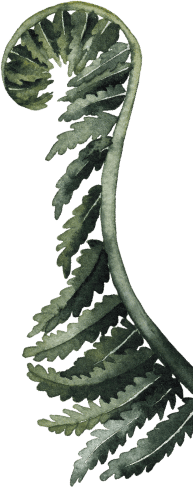i'm a developmental coach
Self-doubt is a protective mechanism that attempts - in complex and subjective ways - to hold us back from psychological risk. It finds a squillion different ways to say: don't do that, you might hurt yourself.
We construct narratives about who we need to be to feel safe - to be accepted, to belong - based on our lived experiences. When these stories become constraining, we find ourselves stuck between our dreams and desires, and the risks they present.
Primarily, my work is about supporting you to feel resourced even when risks are present. We bring your self-doubt (your 'Protector') along for the ride, as we develop the capacity of your internal resources (your 'Healthy Adult Self').
Coaching is an ideal container to uncover, understand and heal the unconscious protective beliefs that are in charge, and to support you to develop psychological flexibility to create a life that feels fulfilling and meaningful.
Developmental coaching is quite different from solution-focused or cognitive approaches that focus on goals, behaviour and mindset. Some key aspects of a developmental approach to coaching:
- non-directive exploration of meaning-making
- holistic and addresses the whole person
- addressing long-standing beliefs and challenges
- aim is to increase the broader capacities of clients
- concerned with how we construct our reality and our sense of self
- self is not whole or fixed - it is changeable, contradictory and made of up many parts.
Self-belief School is a year-long developmental programme you can read about here.
I also teach other coaches my developmental approach to working with self-doubt in Self-belief Coaching Academy. Find out more here.
i'm a coaching supervisor
I've worked with (three different) trauma-informed coaching supervisors throughout my career. I'm convinced this has been the bedrock of any good thing my work has brought to the world.
I've spent the last few years in small group supervision. I feel like every single aspect of my being has exponentially expanded. My self-trust, intuition and discernment with clients, and with my business especially.
My experiences prompted me to undertake a Diploma in Coaching Supervision in 2022. I feel a deep firey purpose about what intentional supportive reflection offers us as practitioners, and in maturing the industry as a whole.
Monthly Supervision is available to all graduates of SBCA.

COACHING: A GENERAL DISCLAIMER
There are no guarantees that coaching will lead to true love, your dream job or wild and unfettered success.
Your life is unlikely to suddenly take on the lustre of a tampon ad, where your hair is perfect and you wear white jeans while riding a horse along a beach at sunset, on the daily.
The people who drive you nuts will remain themselves; your body will be with you always, and life will continue its pace of one damn thing after another.
However.
Having coached with hundreds of clients, having spent thousands of hours exploring the research that underpins this work, I know that coaching can lead to transformative change.
Occasionally this looks like massive life shifts. But often you remain in your chosen circumstances, but inside you there is a more self-compassionate, healthy adult self who emerges. You show up in the world differently. Your loved ones often notice.
The process of coaching often feels revelatory and light. Sometimes it’s mucky and shitawful as we face the difficult bits together. But I promise that through it all, there will be unconditional encouragement.
My mission is to help you heal the root causes of your self-doubt and to cultivate robust and lasting self-acceptance, self-worth, self-trust and self-belief.
Sometimes we need to go underneath everything to hear our wisest, truest, most powerful self.
I can show you how to listen.




